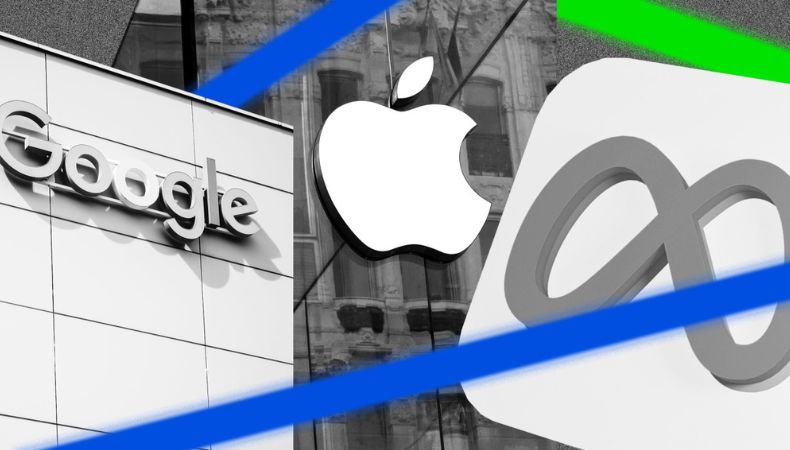Taming Technology Giants: Two New Laws Targeting Digital Services and Gatekeepers

Two significant laws have recently come into force in the European Union (EU) to regulate the activities of digital platforms and address concerns related to competition and content. The Digital Markets Law focuses on competition between large digital companies, while the Digital Services Law deals with the monitoring of content provided by major platforms, according to the German News Agency.
Immediately after the laws were enacted, the European Commission initiated investigations into major tech companies suspected of non-compliance. In late March, the Commission opened investigations into Apple, Alphabet (the parent company of Google), and Meta (formerly Facebook) for potential violations of the special competition rules outlined in the Digital Markets Law.
These investigations were announced just two weeks after the Digital Markets Act came into effect on March 7, underscoring the Commission’s commitment to enforcing compliance with the new regulations, as stated by Margrethe Vestager, the European Union Competition Commissioner.
However, technology companies had a different perspective on the timing of the investigations. Daniel Friedlander, the President of the European Computer and Communications Industry Association (CCIA), believed that the European Commission’s announcement of the investigations during the ongoing compliance workshops for the Digital Markets Law created the impression of jumping ahead of events.
Notably, Apple, Google, and Meta are members of the association.
The Digital Markets Law aims to regulate the competitive practices of major platforms, which the European Commission considers “gatekeepers” in the digital economy. A “gatekeeper” refers to a company that holds a strong and established position in the EU’s digital economy, acting as an intermediary between numerous users and businesses.
The Digital Services Law, as the sister legislation to the Digital Markets Law, focuses on content monitoring, compelling digital platforms to take stronger measures against harmful and illegal content.
In August 2023, the first phase of the Digital Services Law’s rules came into effect for “very large platforms” and “very large search engines” serving over 45 million monthly users in the European Union. The rules for smaller platforms will take effect in February 2024.
Under the Digital Markets Law, the European Commission has identified six “gatekeeper” companies: Alphabet, Amazon, Apple, Meta, Microsoft, and TikTok (owned by ByteDance). These companies are the primary targets of the law’s regulations.
Additionally, the Commission has identified 22 distinct digital services, very large platforms, and search engines subject to the Digital Services Law. This list includes the “gatekeepers” identified under the Digital Markets Law, such as Google Search, Google Play, Google Maps, Google Shopping, YouTube, Facebook, Instagram, Bing, LinkedIn, TikTok, Amazon, and the Apple App Store.
The Digital Services Law also designates X platform (formerly Twitter) as a very large online platform, which is currently under investigation for suspected violations of the rules. Although X has not yet been designated as a “gatekeeper” under the Digital Markets Act, the company has notified the European Commission that it meets the criteria.
Regarding concerns about competition, the European Commission suspects that Google and Apple have not implemented effective measures to allow mobile application developers to inform users about their offerings outside the application stores operated by the “gatekeepers.” The Commission also suspects that Google favors its own services in search results, potentially prioritizing “Google Shopping” over competing services.
Meta, on the other hand, is being investigated for its recently implemented policy that requires users to choose between paying for access or agreeing to share personal data with Meta’s services, such as Facebook and Instagram, for targeted advertising purposes. The Commission is also examining whether Amazon gives preferential treatment to its own branded products and whether Apple’s new fee structure for the App Store complies with the Digital Markets Act.
The Commission aims to conclude its investigations within 12 months. Companies found to have violated the Digital Markets Law may face fines of approximately 10% of their annual revenue, which could increase to 20% for repeated violations. The European Commission has also used its authority granted by the Digital Services Law to address risks associated with artificial intelligence (AI). It has required platforms, including TikTok, Facebook, Instagram, X, Google Search, YouTube, Snapchat, and Bing, to clarify the measures they take to manage content risks related to AI, such as deepfakes.
These companies must comply with the risk mitigation guidelines outlined in the Digital Services Law. Violations of the risk mitigation rules may result in fines of up to 6% of a company’s global annual revenue.
There are particular concerns in Brussels regarding the potential manipulation and dissemination of misleading information by external actors during the upcoming EuropeanParliament elections scheduled for June. To safeguard the elections, the European Commission has requested information from the aforementioned companies regarding their measures to manage the risks associated with content generated by artificial intelligence. The companies were given until April 5th to respond to election-related questions and until April 26th to address other concerns.
It’s important to note that, like all EU regulations, the Digital Services Act must be implemented as national law in each member state. However, this has sparked controversy, with some arguing that the law could lead to excessive censorship and the suppression of technically illegal content.




